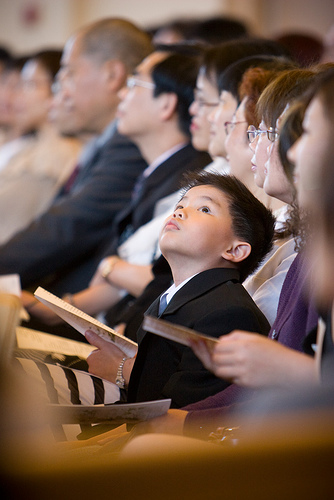Luke 2:8-20
The first worship gathering recorded in the New Testament was the birth of Jesus Christ. Shepherds and wisemen gathered to confirm what they had learned from messengers and Scripture. Bethlehem must have been astir with news of the birth.
Childbirth remains one of the most awesome events in the human experience. Any parent who has been blessed with the birth of a child will tell you words fall short describing this common yet seemingly miraculous event. To say it is life-changing understates the addition of a newborn to a home. For parents there is a new center of the universe. Babies require time, attention, and an emotional investment.
I remember the amazing moment each of my children entered the world. I was more spectator than anything else. Oh, yes, I coached my wife and held her hand, but there was an overwhelming feeling that all of us present, including my wife, were there for an event that was going to happen on a timetable we did not control. As I have learned many years later from my midwife daughter-in-law, babies are caught, not delivered.
After that all important “catch”, there is a new priority in your life. A baby needs all of you nearly all the time. Emotional and physical bonding begins and what was a womb relationship begins to become a meeting and bonding of hearts and minds. It is an adventure like no other.
God chose to bring Jesus into the world from the womb and in relatively humble fashion. Not only did the center of the universe change for Mary and Joseph, but also for the world. A broken relationship between God and man was reestablished and what had been promised, arrived.
From the very beginning, Jesus was worshipped. Before stories and miracles, believers came to “see”. It is interesting that in Dr. Luke’s account of the birth he writes, “shepherds were watching their sheep….” and upon hearing the news, went immediately to find the baby. We don’t hear anything more about the sheep. Only moments before, their sheep were likely the most important thing in their lives. It was their life, their work, their financial security. Yet, they “hurried” to find the baby about whom they had heard and left their sheep. Shepherds and wisemen alike set out to “see” and their hopes found assurance in a new born child. A newborn baby was worshipped.
So how do you worship a baby? First, realize the promise. The shepherds knew the promise. They did not need a lengthy explanation of what God was doing. They were familiar with the promise and hurried to see. Worshipping Jesus as a baby means remembering all the promise He held. We need to worship Him for who He was as a baby, before the miracles and suffering He bore for us. Second, we should worship with abandon. The shepherds’ priorities changed and they were overcome with a curious yearning that brought them to Bethlehem. The worship of God as a baby needs to always be of singular focus that is born of a yearning for hope. This Christmas, worship a baby by hearing and realizing God’s promise of peace on Earth and by His grace investing yourselves in goodwill toward men.
Have a worshipful Christmas!
the friar





